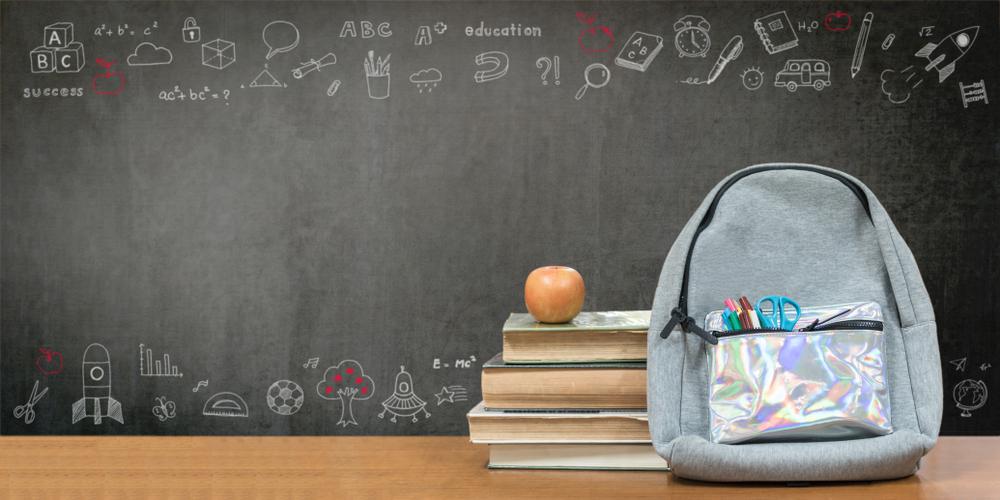Rhyming skills Worksheets for Kids
10 filtered results
-
From - To
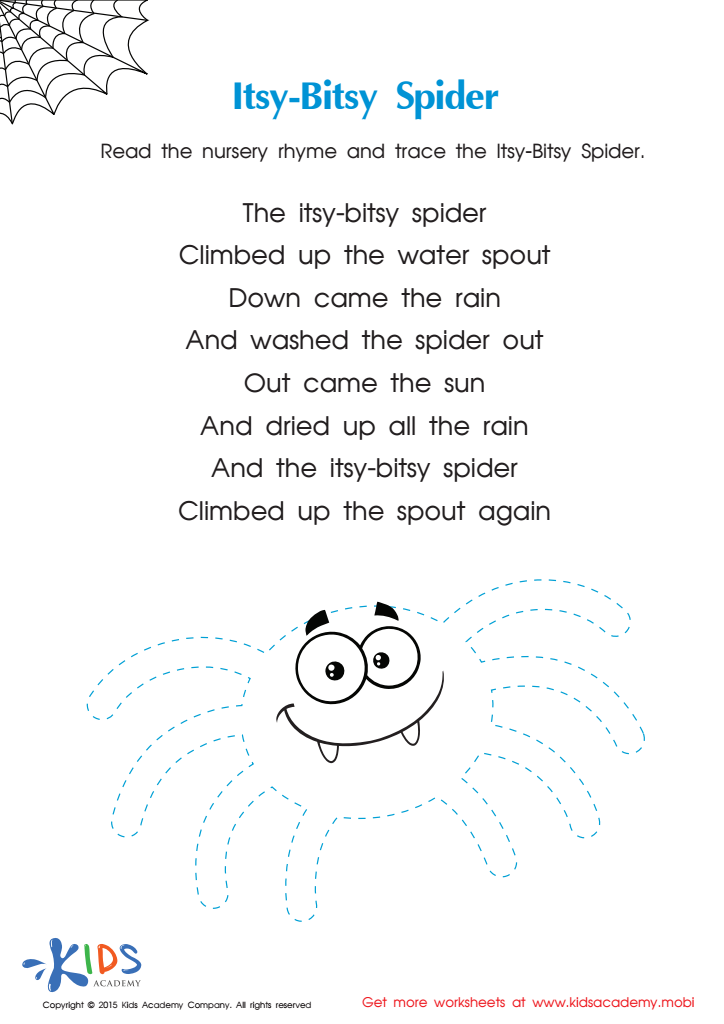

Itsy Bitsy Spider Nursery Rhyme PDF Worksheet


Rhymes in Poems Worksheet
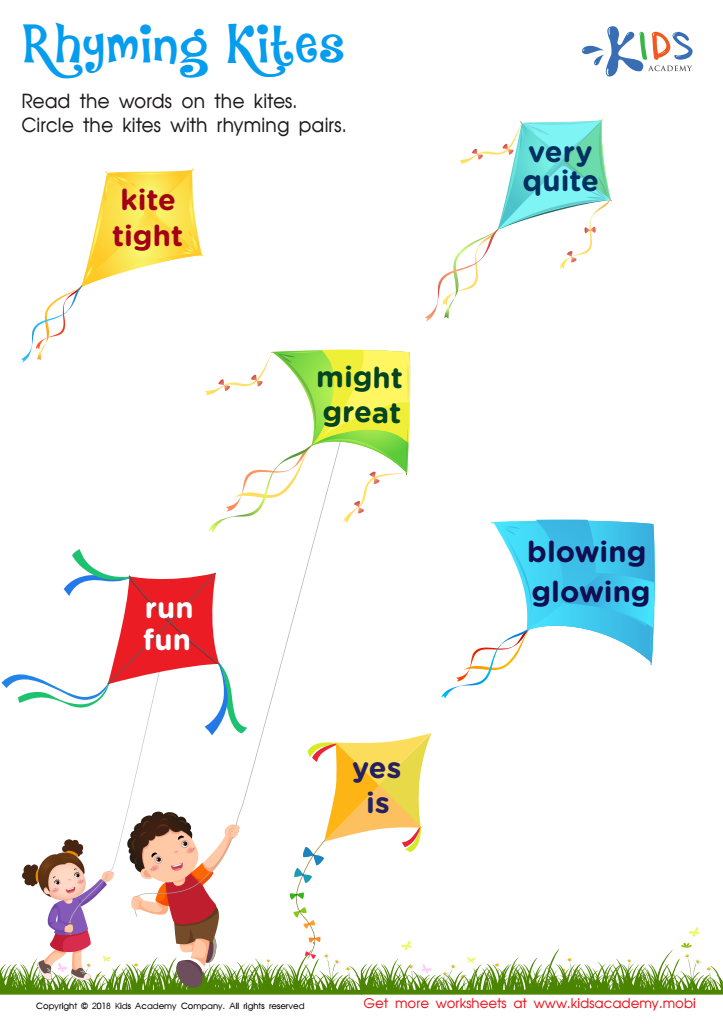

Rhyming Kites Worksheet
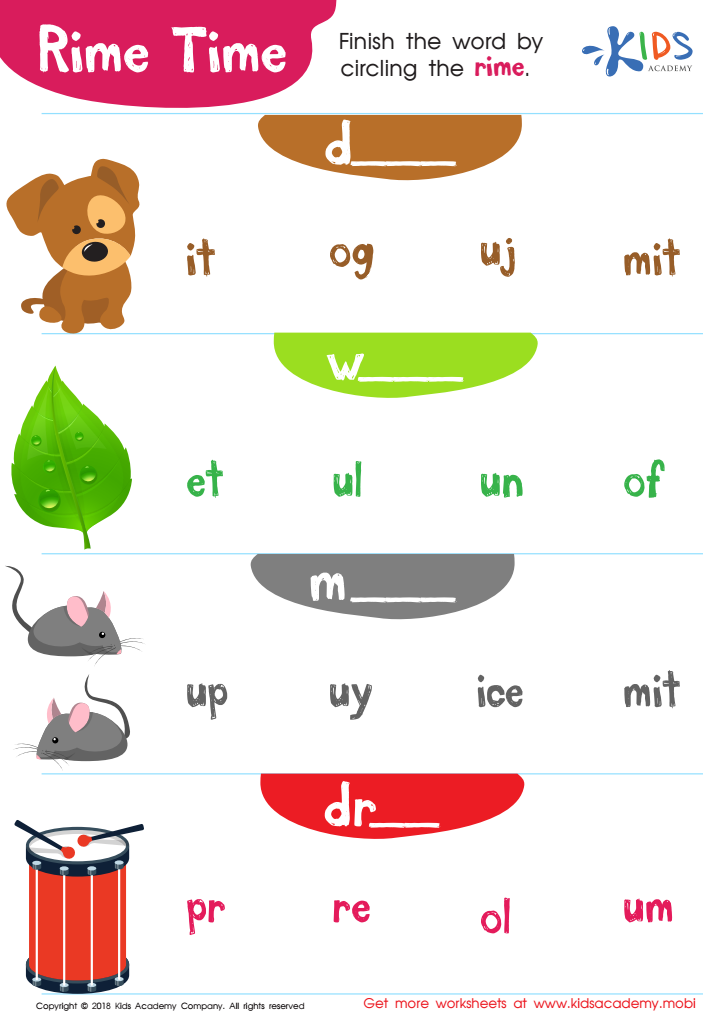

Rime Time Worksheet
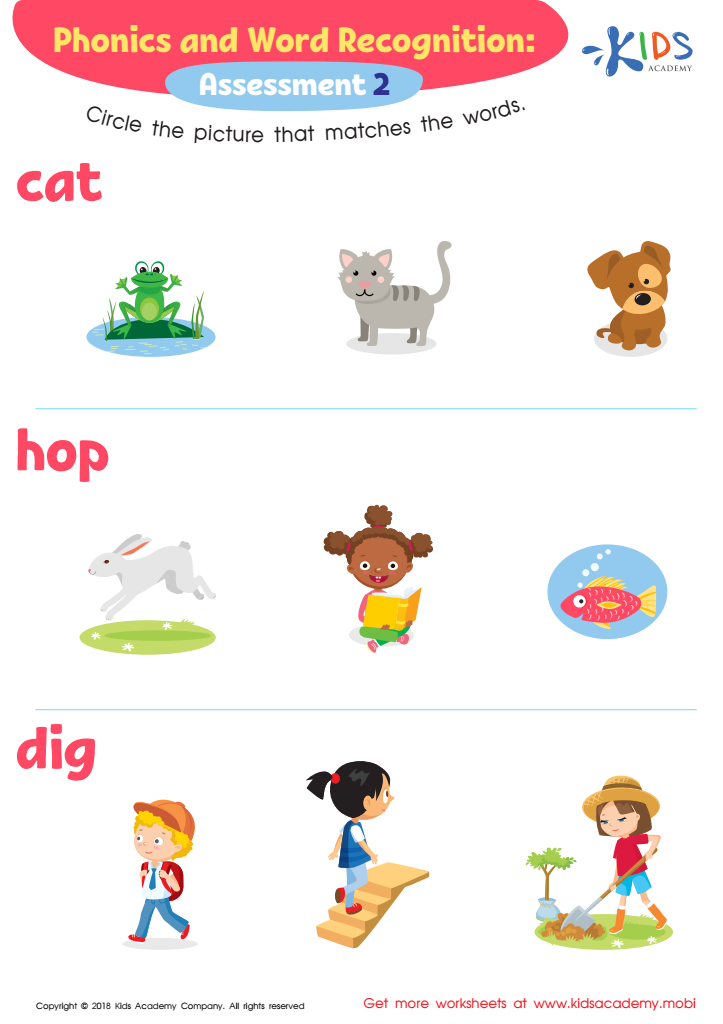

Phonological Awareness: Assessment 2 ELA Worksheet
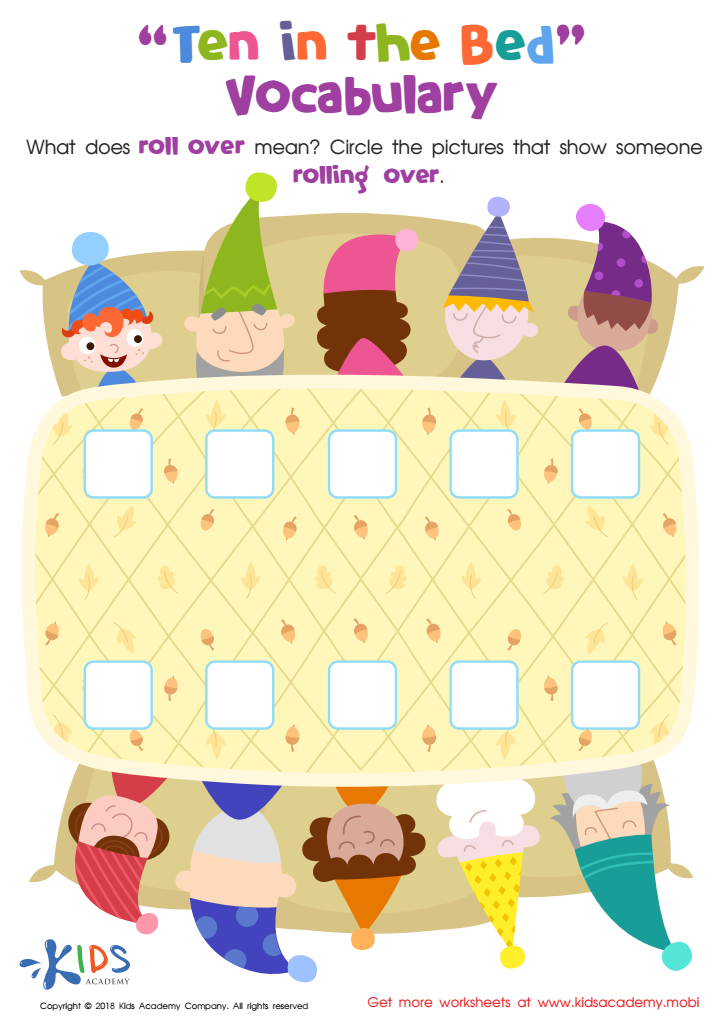

Ten in the Bed: Vocabulary Worksheet
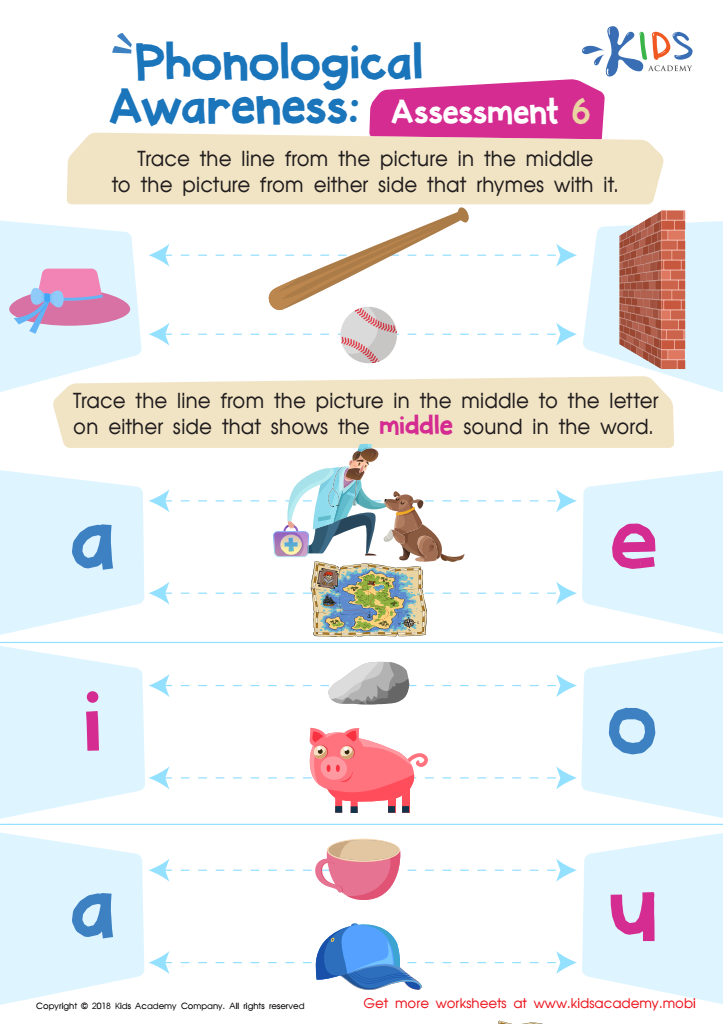

Phonological Awareness: Assessment 6 Worksheet
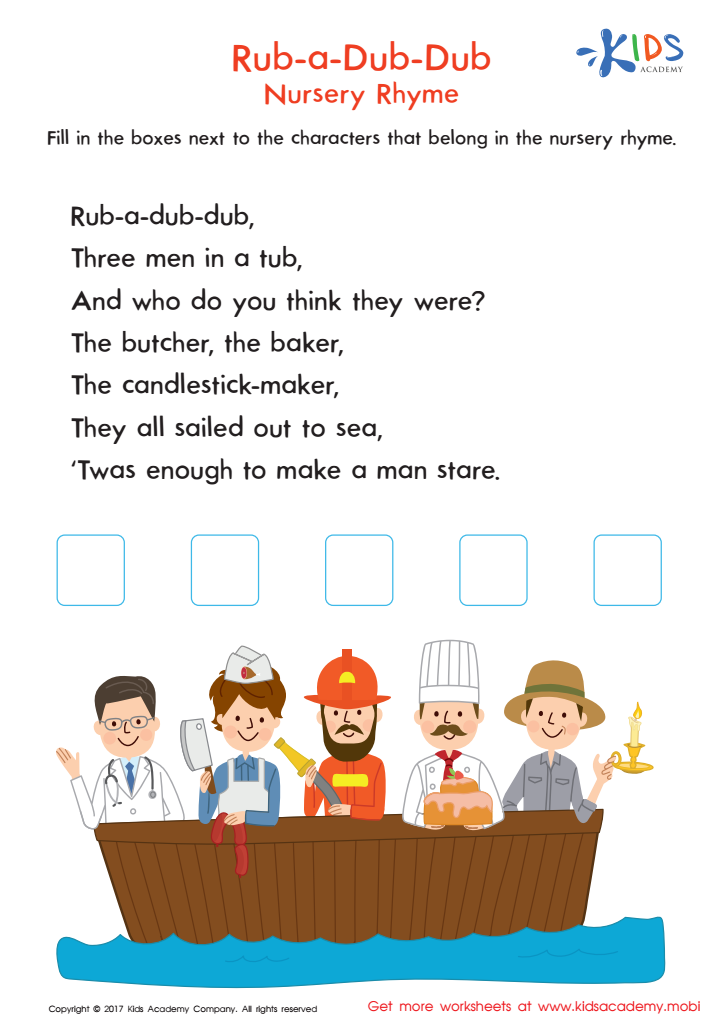

Rub a Dub Dub Printable
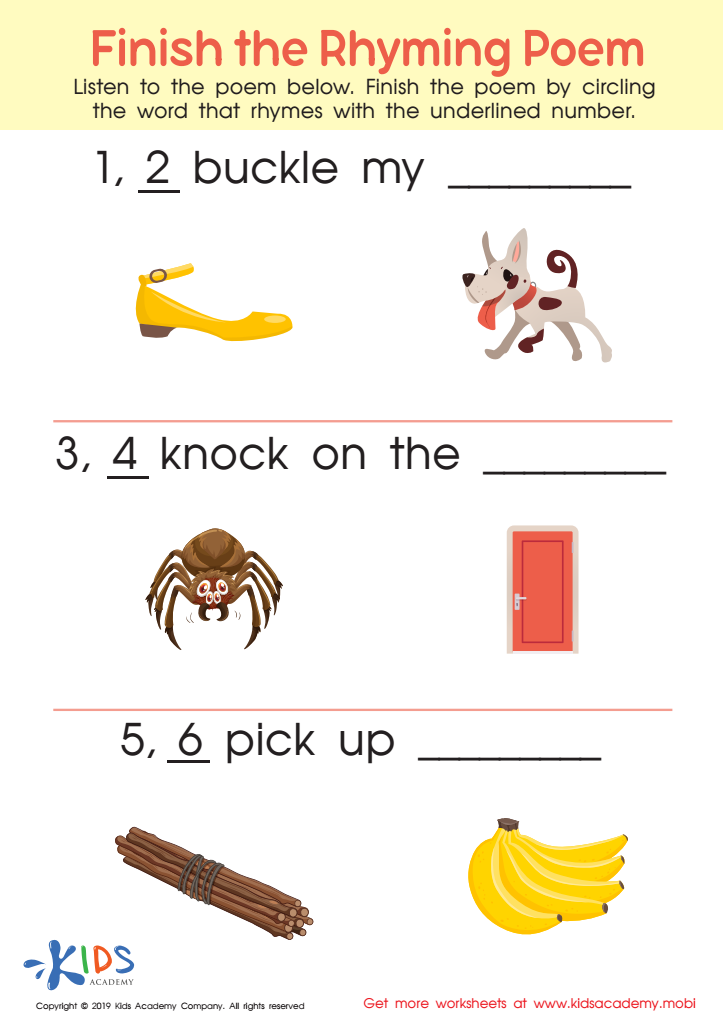

Finish Rhyming Poem Worksheet
Question/Answer
Why is the Rhyming skill important for Kindergarten students?
The rhyming skill is important for Kindergarten students because it enhances their phonological awareness, a foundational skill for reading. By recognizing and producing rhymes, children improve their ability to distinguish sounds within words, which is critical for decoding and spelling. Rhyming also enriches vocabulary and language development, facilitating a smoother transition into fluent reading and writing.
How does the mastery of the Rhyming skill affect a student's performance at an early age?
Mastery of the Rhyming skill at an early age significantly enhances a student's phonological awareness, which is crucial for reading and spelling success. It improves their ability to recognize and work with sounds, facilitating the learning of phonics and the development of literacy skills. This foundational skill can lead to better academic performance and increased confidence with language.
What does the Rhyming skill mean when it comes to Kindergarten Grammar learning?
In Kindergarten Grammar learning, the Rhyming skill involves recognizing and producing words that have the same end sound. It's a foundational literacy skill that helps children understand language patterns and phonics, crucial for reading and spelling. Rhyming enhances phonemic awareness, preparing kids for more advanced reading strategies by making connections between sounds and spellings.

 Assign to the classroom
Assign to the classroom




